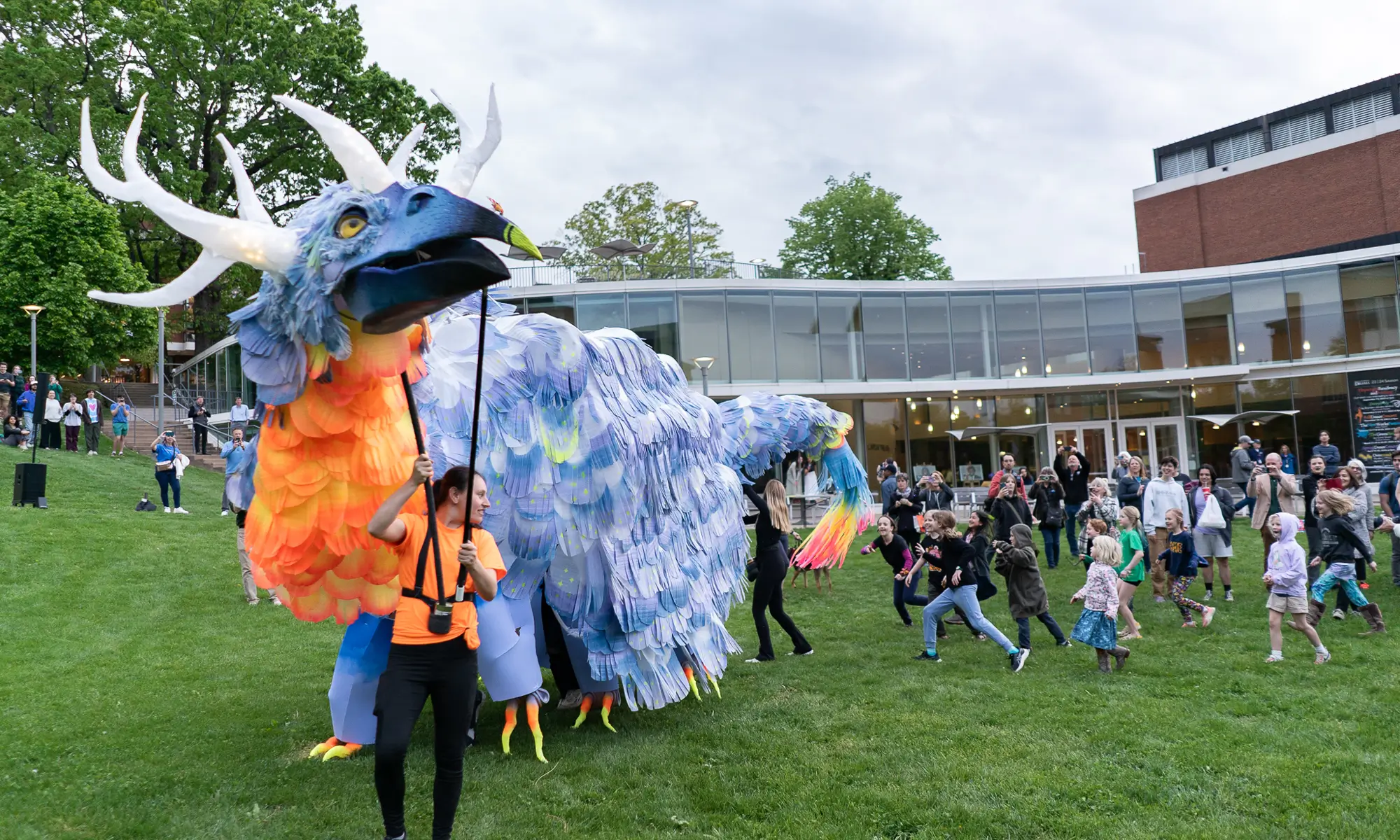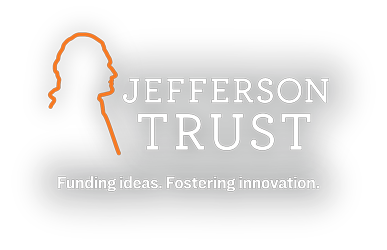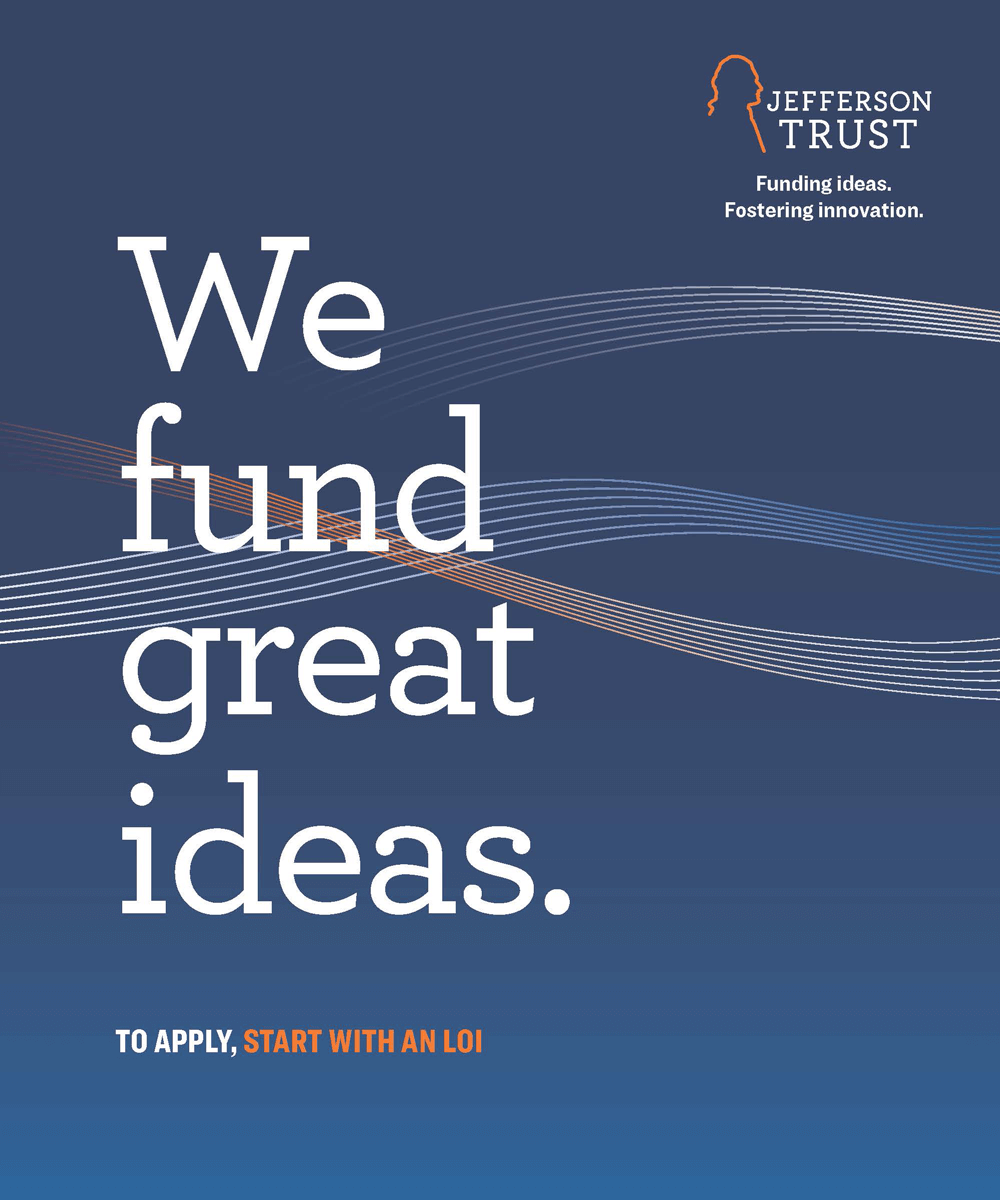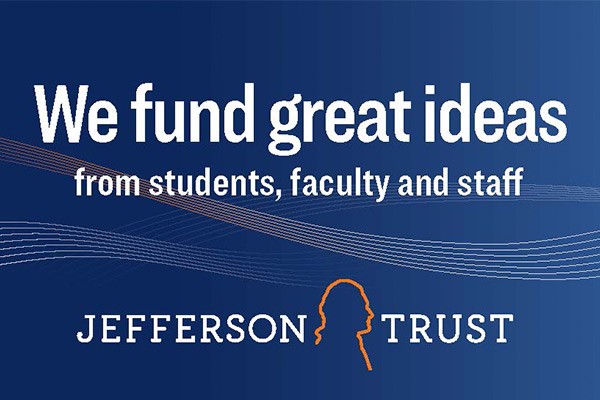The Jefferson Trust Board of Trustees has awarded $1.4 million to 17 new projects and programs.
“Given the volume of requests we received this year, I couldn’t be more pleased with the scope of projects and programs the Trustees ultimately funded,” says Brent Percival, Executive Director of the Jefferson Trust. “The Trust made fourteen Annual Cycle grants each of the past two years. This year, we have 17, which speaks to the Trustees desire to maximize the limited funding available to impact as many parts of the University community as possible”.
“This Annual Cycle started with 123 letters of inquiry and resulted in 17 grants,” shares Amy Bonner, Director of Grants. “While I wish we could fund them all, this is a great step toward our vision of seeing every great idea at UVA come to fruition”.
This year’s proposals and subsequent grants were among the most diverse we have ever seen. From community impact measures to unique student projects, to translational research, these ventures illustrate the vibrancy that exists across the University.
The 2023-24 Grants:
UVA Student Engagement with Local Black Histories: River View Farm: $98,800
Support enhances undergraduate course AAS 4501 and creates a summer internship program with the Department of African American and African Studies and the Ivy Creek Foundation. Students will be trained in public history methods, and archival and genealogical research at River View Farms, exposing them to archive-based research, oral history, and 3D modeling.
The World at Your Doorstep, Democracy’s Future in Your Hands: $100,000
New courses will be created to allow students to establish research partnerships with faculty and international advocates and participate in international conferences focused on the future of democracy and democratic rights. The program will bring leaders in the field to Grounds and provide students hands-on global experience.
Jefferson Society Bicentennial Storytelling Project: $33,850
Interviews from alumni will be recorded and compiled into a multimedia exhibit, along with the society’s physical archives, to celebrate the Jefferson Literary and Debating Society’s bicentennial in 2025.
Nursing Narratives: $24,000
Funding helps to add a recurring editorial section to both the print and digital versions of “Virginia Nursing Legacy,” UVA School of Nursing’s quarterly magazine. Content will focus on capturing the voices, experiences, and opinions of UVA nurses (including students, faculty, and alumni), giving them a platform to share, and giving readers a closer look at the issues and topics that impact nurses.
SPRINT Program: Bridging the Gap to Enhanced Rehabilitation and Community Engagement: $120,000
The Sports Performance Rehabilitation Integrating Neuromuscular Training (SPRINT) program aims to reduce re-injury rates and increase the number of patients successfully returning to sports post-surgery, from knee injuries. SPRINT will serve as a learning platform for students aspiring in sports medicine, physical therapy, or sports performance domains.
D-Mine: $24,972
With the purchase of a thermal camera, a drone with increased thermal sensitivity, and other related equipment, the D-Mine project aims to develop new de-mining software that can save lives, resources, and time for anti-explosive teams, ultimately de-mining territories more quickly and safely.
UVA Cyber Range: $71,548.79
Designed to enhance cybersecurity education, support research, and promote cybersecurity endeavors outside the classroom, a team of students will provide an environment for students to conduct a wide range of cyber experiments.
A Partnership to Promote Innovation and Excellence in Lower Division Mathematics Courses: $170,000
A collaboration between lower division mathematics faculty and the Motivate Lab, this project aims to increase students’ success in calculus classes through growth-based assessments and a summer bridge program.
UVai Vanguard: $112,870
This project is a groundbreaking initiative to integrate Generative Artificial intelligence (AI) and Large Language Models (LLMs) into academic settings including research, mentorship, and teaching.
Preparing Students for Careers in Trustworthy Artificial Intelligence (CTAP): $90,000
Through research, outreach, collaboration, and pilot courses, the Careers in Trustworthy Artificial Intelligence Program (CTAP) aims to provide UVA students with the skills and knowledge required to succeed in the growing Trustworthy Artificial Intelligence (AI) workforce.
Design Discovery Youth Summer Program: $86,300
Hosted by the UVA School of Architecture, Design Discovery is a six-day summer program bringing high school students to explore design school and related professions, through academic and real-world settings.
The influence of early-life sensory exposure on neural circuitry following preterm birth: $200,000
A multi-disciplinary, cross-Grounds team of researchers and clinicians is examining how variable early life sensory exposure following preterm birth shapes developing neural circuitry to ultimately impact developmental outcomes.
UVA Facilities Management Community Connections Program: $102,000
In partnership with the Charlottesville communities and surrounding counties, Facilities Management is expanding a workforce development pipeline program for middle- and high-schoolers to work towards pre-apprenticeship certification in skilled trades.
ChangeMaker Bootcamp: $20,000
Through skill development, networking, mentorship, and resource access, social entrepreneurial minded students will gain experience planning, developing, and building a new social venture in this week-long program.
Gardening Grounds: Envisioning Alternate Paradigms and Practices of Landscape Care at UVA: $30,000
A collaborative research project across Grounds, involving Landscape Architecture and Architecture graduate students, explores how the design and care of planted landscapes across Grounds can be adapted to sustain greater biodiversity, spark awareness and foster stewardship of the mutual relationship between landscape health and human well-being.
Center for Forest Urbanism: $86,000
A new pan-university research and policy center focused on the conservation of urban trees and forests, the center will engage a range of disciplines, expertise, and partners across Grounds, and nationally, to gather insights from innovative city best practices, law, policy, economics, and science.
VCAC Student Symposium: $30,000
Funding helps to bring current UVA students who were served by Virginia College Advising Corps (VCAC) advisers together for a symposium, which will include networking opportunities and related programming over shared experiences.








